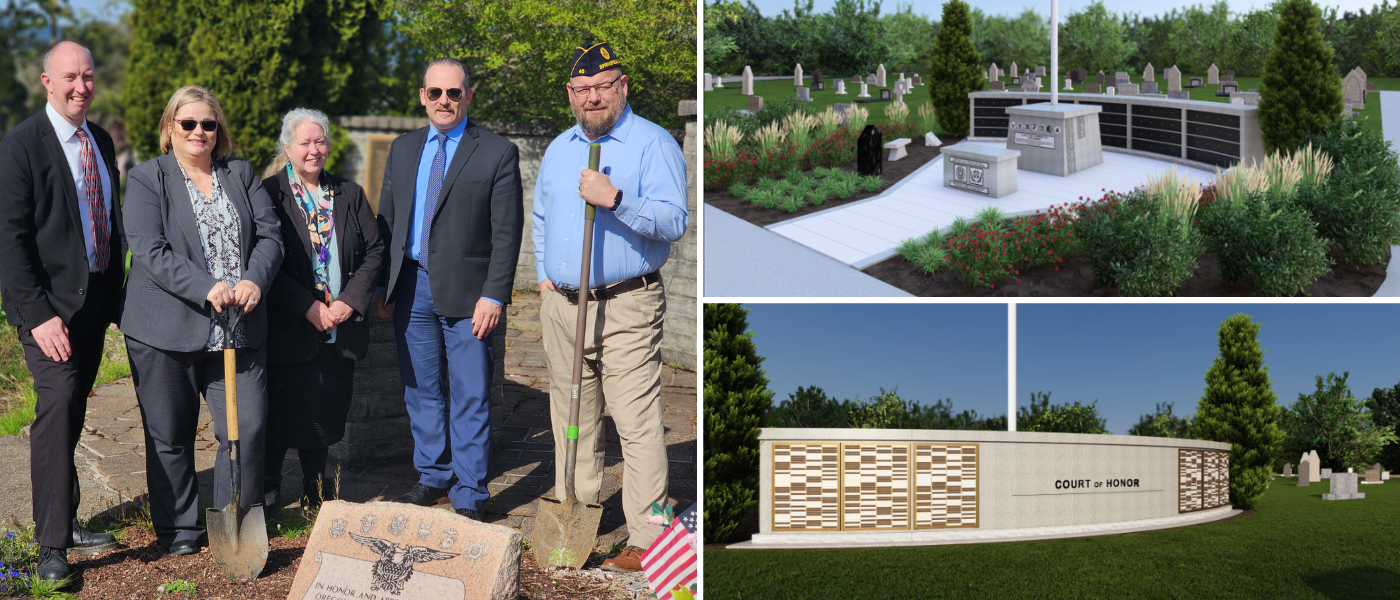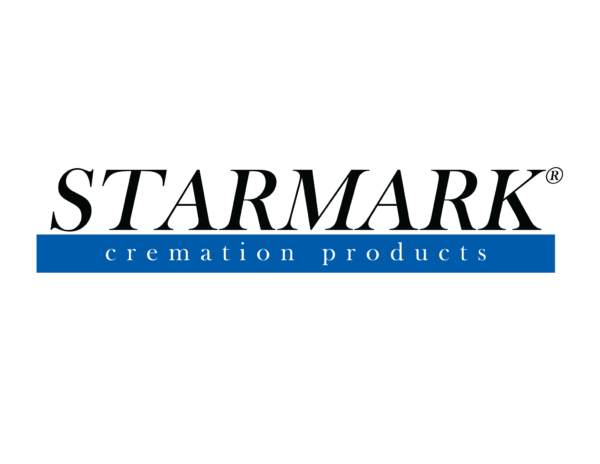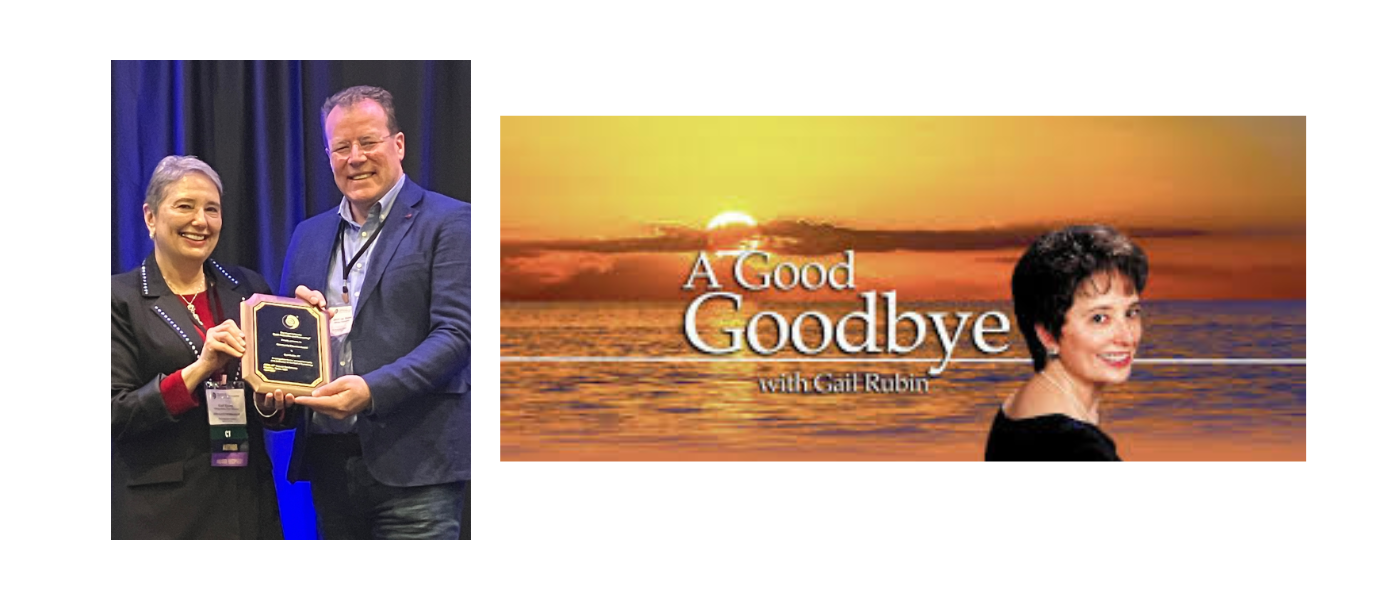Speak From Beyong The Grave, High Tech Headstones
 After he dies, Christopher Hill plans to speak to his grandchildren, great grandchildren and even future generations from beyond the grave ? not through a psychic medium or his last will and testament, but through a microchip.
After he dies, Christopher Hill plans to speak to his grandchildren, great grandchildren and even future generations from beyond the grave ? not through a psychic medium or his last will and testament, but through a microchip.
“I think that when you walk by a gravestone and only see things like a few words, or a name and a date, it can be somewhat cold, impersonal, and almost incomplete,” the 41-year-old from Northern Virginia told ABCNews.com. “This gravestone is supposed to tell the story of a person, and provide you that connection or emotional remembrance.”
With new technology developed by a Phoenix, Ariz. company, he now thinks that could be a real possibility.
Launched by Objecs, LLC last month, Personal RosettaStones are iPod-sized stone tablets embedded with RFID (Radio Frequency Identification) tags that can store up to 1,000 words and a picture. When they’re near a mobile phone equipped with compatible technology, the information in the microchip is beamed right on to the cell phone screen. Objecs says the tags, which can be affixed to headstones, can last for up to 3,200 years.
Hill, a financial advisor and founder of a funeral resources Web site, was an early supporter of the product and among the first to buy one.
RosettaStone Could Give Future Generations More Insight Into Family History
With it, he said, future generations would be able to visit his burial site and see more than his name and dates etched in a stark, grey tablet. They’ll be able to read about where he lived and what he loved to do and how he lived his life.
“I literally can speak to people forever, I can be seen forever,” he said. “I can always have something my kids can see and touch.”
As the funeral industry continues to become more technologically sophisticated, with funeral webcasts, memorial Web sites and tribute DVDs, he said the RosettaStone could appeal to families looking for a new way to remember loved ones.
Since news about the RosettaStones broke, Objecs says the company has been flooded with inquiries ? too many, in fact, for the small company to keep up with.
“It’s been overwhelming,” said John Bottorff, the company’s founder. But he acknowledged that given the very high-tech nature of the product, many of the inquiries have come from members of the tech community.
Near Field Communication Tech Could Extend to Cash Machines, Billboards and More
The RosettaStones only communicate with phones equipped with near field communication (NFC) technology. The short-range communication technology allows information to pass wirelessly between two devices that are within inches of each other. The industry says that vending machines, cash machines, billboards and street signs could all become NFC-enabled.
Though it isn’t prevalent in the U.S., Bottorff expects that it will migrate to the U.S. soon. At the moment, the standard has generated more interested in Europe and Japan, he said, adding that many of the RosettaStone inquiries have been from those parts of the world.
“We have a technology in place, right now,” he said. “But it’s sort of like building a road and there’s not a shopping mall out there yet.”
But he expects the shopping mall to come.
Borttoff said the idea for the stones was born of both professional and personal events. His company specializes in “object hyperlinking,” or the use mobile devices to access information about the objects around them. Using RFID technology, barcodes and other kinds of systems, people can use their cell phone to access information on ads, tourist sites, consumer products and more.
Around the same time that he was approached by a client to create a way to tag historic grave sites, his family lost several loved ones. The project requested by the client didn’t continue, but he said the personal interest did.
Company Treats Information as ‘Genealogical Archive’
“I think that it was seeing that our relatives, I guess, were being memorialized with information etched in a granite headstone and, at the time, both my wife and I looked at this and it just seemed so thin,” he said. “These people are certainly a lot more than a name and a birth date and a deceased date.”
While memorial Web sites provide a way for people to share and store information about deceased loved ones, he said, unlike his product, they’re not interested in long-term data survival.
“Our data files, we treat them as a genealogical archive,” he said. “This is about a public record.”
Each RosettaStone client is assigned a unique number and all of his personal information is stored in a central database, Borttoff explained. This system simplifies the task for the person 100 years in the future trying to piece together her family tree or the historian collecting artifacts of communities long-gone.
“This is an action that is more for society, humanity in a longer sense,” he said.
For about $200, Bottorff said, customers can choose either granite tablets (which he says will last for 3,200 years) or ones made of travertine (which last for about 300 years). Then, from a menu of hundreds, they can choose six icons to be engraved on the stones that communicate the person’s interests and values.
A map, for example, could indicate the person’s hometown, the scales of justice or an ambulance could represent his occupation.
“Our message is you don’t have to be a rule maker or a king to have a RosettaStone,” he said. “It’s for anybody who is a common citizen of the world.”
But some in the funeral industry doubt that the technology will take off.
Bonnie McCullough, executive director of the N.Y. State Funeral Directors Association, said that though the memorial industry is becoming more technologically-involved, families arranging the funerals of loved ones might not be willing to absorb the added expense of this kind of technology.
While webcasts for funerals and memorial Web sites let loved ones share memories and support those in grief, she said, RosettaStone’s technology seemed more interested in creating a public record for future generations.
“We’re in a little bit of a challenging economy,” she said. “Families may be more worried about today’s finances than historical information seekers one hundred years from now.”
Younger Generations May Remember Deceased Relatives Differently
But others say that as younger, more tech-savvy generations become the ones responsible for funeral arrangements, products such as RosettaStone may appeal more widely to families.
Younger generations are already showing more interest in green funerals, video memorials and other non-traditional arrangements, James Olson, a spokesman for the National Funeral Directors Association, told ABCNews.com.
Accustomed to recording and sharing their lives with technology, he expects them to bring a different mentality to memorializing a loved one.
“As the baby boomer generation starts to pass, we’ll see more and more of this technology,” he said. “[Children of baby boomers] are more technologically-involved and they’re going to want these things for their parents.”
Source: Abc News



